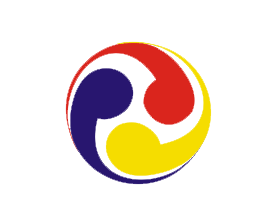Why can't I find my Okinawan immigrant's name?
First a little about the Japanese written language
Japanese has two ways of writing names: kanji and kana. Kanji is the adopted Chinese ideographic characters which is shared by the Korean
and Vietnamese languages. Kana is a phonetic characters developed by the Japanese which represents every sound in the Japanese language.
There are many ways to pronounce almost every kanji, known as "readings". There are readings from the original Chinese characters and
readings that the Japanese had given to the same kanji. There are also multiple readings even in the Chinese and Japanese characters!
Now add in the complication with Okinawan names
Prior to the 18th century Okinawan commoners had no surnames and were known only by simple names, such as Taru, Ushi, and Kami. When
the Okinawan kingdom was annexed by the Japan in 1879, it was mandated that all have surnames and given names. Many chose their
surname the Chinese readings of towns and villages where they lived. However, many adopted the Japanese readings of as their
chosen surname while the town names remained unchanged. For instance the village of Kanegusuku retains its name but a family name
with the same kanji is called Kinjo. Dakujaku is now Dakuzaku. Jitchaku is now read as Serikaku. Anything "Ara" (Arakaki, Arakawa)
may also be "Shin" (Shingaki, Shinkawa). Also "gusuku/shiro” can also be "gi" as Miyagusuku/Miyashiro became Miyagi. Kaneshiro,
once Kanegusuku is now Kinjo. Tamashiro is commonly read as Tamaki. When Okinawans emigrated, many chose simpler or shorter
reading of their names. The bottom line is that no one can be 100% certain of a reading except the person himself, although the
kanji has not changed. It is not uncommon for emigrants to have differing readings from their family still residing in Okinawa.
So, why can't I find my name in the database?
Two possible reasons are:
1) No data source is complete or accurate and may be missing data.
2) The person you are searching for did not immigrate between 1900 and 1926,
the immigration date range of this database.
The most probable reason is this. The kanji/kana data source from the Japanese Ministry of Foreign Affairs was translated
using the most common reading when it could not be determined what the correct reading is. Therefore the main reason why your
name was not found is that the most common reading we have used does not match your name. There is no Miyashiro in the
database, but Miyagi is the common reading chosen. The same for Tamashiro/Tamaki, Serikaku/Jitchaku and many others.
What is the most effective way to search for your name?
First search only for the 1st two letters of your last name to see what last names are listed. Pick the last name and search
again to see what first names are listed. Search again with first and last name and now you can begin to narrow your search using
DoB, Address & Country if needed. In the database we have attempted provided alternate kanji for the name being searched at the
bottom of the search results screen. Also when presented the option, choose kanji if you recognize it.
However, since the original source is kanji, your best chance of finding your name is to locate your kanji
name from family records or possibly cemetery headstones and enter it in the last name field. Good Luck!
